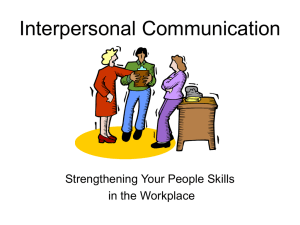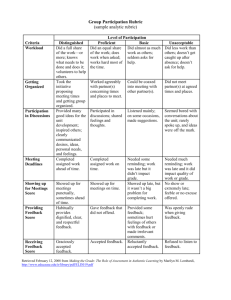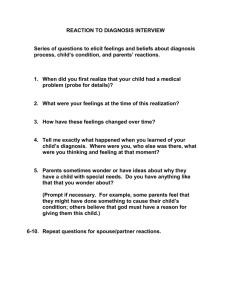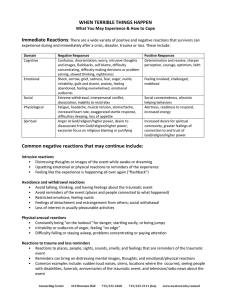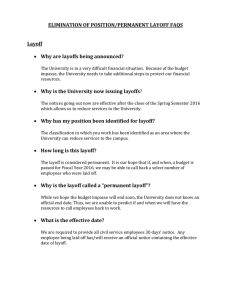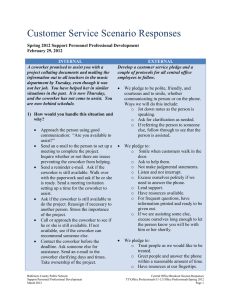Supporting Someone Who Lost a Job
advertisement
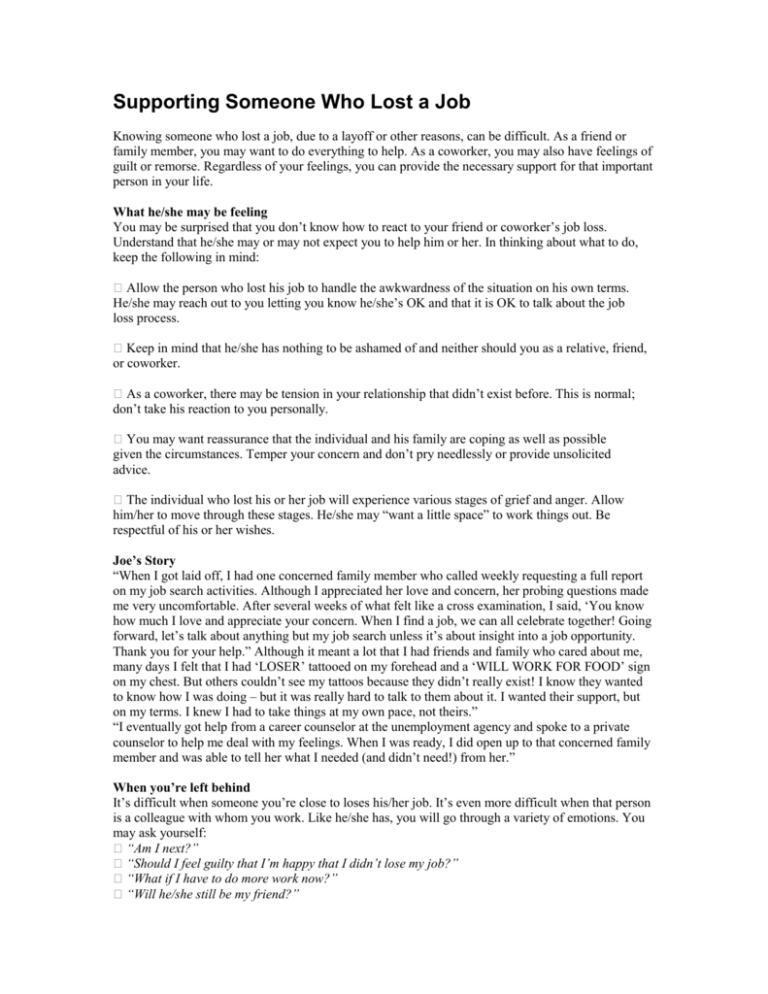
Supporting Someone Who Lost a Job Knowing someone who lost a job, due to a layoff or other reasons, can be difficult. As a friend or family member, you may want to do everything to help. As a coworker, you may also have feelings of guilt or remorse. Regardless of your feelings, you can provide the necessary support for that important person in your life. What he/she may be feeling You may be surprised that you don’t know how to react to your friend or coworker’s job loss. Understand that he/she may or may not expect you to help him or her. In thinking about what to do, keep the following in mind: � Allow the person who lost his job to handle the awkwardness of the situation on his own terms. He/she may reach out to you letting you know he/she’s OK and that it is OK to talk about the job loss process. � Keep in mind that he/she has nothing to be ashamed of and neither should you as a relative, friend, or coworker. � As a coworker, there may be tension in your relationship that didn’t exist before. This is normal; don’t take his reaction to you personally. � You may want reassurance that the individual and his family are coping as well as possible given the circumstances. Temper your concern and don’t pry needlessly or provide unsolicited advice. � The individual who lost his or her job will experience various stages of grief and anger. Allow him/her to move through these stages. He/she may “want a little space” to work things out. Be respectful of his or her wishes. Joe’s Story “When I got laid off, I had one concerned family member who called weekly requesting a full report on my job search activities. Although I appreciated her love and concern, her probing questions made me very uncomfortable. After several weeks of what felt like a cross examination, I said, ‘You know how much I love and appreciate your concern. When I find a job, we can all celebrate together! Going forward, let’s talk about anything but my job search unless it’s about insight into a job opportunity. Thank you for your help.” Although it meant a lot that I had friends and family who cared about me, many days I felt that I had ‘LOSER’ tattooed on my forehead and a ‘WILL WORK FOR FOOD’ sign on my chest. But others couldn’t see my tattoos because they didn’t really exist! I know they wanted to know how I was doing – but it was really hard to talk to them about it. I wanted their support, but on my terms. I knew I had to take things at my own pace, not theirs.” “I eventually got help from a career counselor at the unemployment agency and spoke to a private counselor to help me deal with my feelings. When I was ready, I did open up to that concerned family member and was able to tell her what I needed (and didn’t need!) from her.” When you’re left behind It’s difficult when someone you’re close to loses his/her job. It’s even more difficult when that person is a colleague with whom you work. Like he/she has, you will go through a variety of emotions. You may ask yourself: � “Am I next?” � “Should I feel guilty that I’m happy that I didn’t lose my job?” � “What if I have to do more work now?” � “Will he/she still be my friend?” These feelings of anxiety, guilt, and fear are normal. Don’t discount your feelings or ignore them; chances are others in your work unit feel the same way. Reach out to someone you know you can trust and discuss your feelings. Maybe there are common issues that others in the work unit are feeling. You can discuss common strategies or seek professional guidance from an Employee Assistance Program. What you can do to help Assist the individual throughout the re‐ employment process by providing job leads, encouragement, humor, and fellowship. � Recognize that you are likely to progress through similar stages of denial, anger, sadness, and ultimately, acceptance as the person who was laid off. Until the person who lost his/her job gets to acceptance stage, there is little you can do beyond just being there. � Spread the word about your loved one’s job loss tactfully among close family and friends. You may be reluctant or unsure how to do this, but it’s important for others to know, so they can provide valuable help and support as well. � Encourage the individual to stay involved with family, friends, professional associations, hobbies, etc. Don’t let his/her embarrassment about the layoff lead to unhealthy isolation. � Work with him/her to make sure he/she understands what she needs to do before leaving the position, such as accounting for unused vacation pay, expense reimbursement, and so forth. Make sure he/she meets any deadlines for continuing health insurance coverage, rolling over retirement monies, or filing for unemployment. � Offer to help with the job search, then back off. You may be understandably concerned about his/her personal financial situation, but pressuring someone who is already feeling pressured Will be unproductive, at best. � Be alert for signs of depression if your loved one’s unemployment persists beyond a month or two. Eating, drinking, or sleeping too much or too little, along with a consistently depressed mood, may be signs she needs more help than you can provide. i Sources: Professionals In Transition Support Group, Inc. (2000); How Article: How To Support a Loved One Who Has Been Laid Off (2007)



